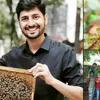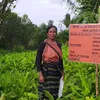Sustainability Agenda: Meet the startup addressing environmental concerns caused by animal feed production
In this week’s Sustainability Agenda series, SocialStory features Insectfii, a commercial-scale insect farming startup that is replacing resource-intensive animal feed with high-protein insect larvae.
Over the years, India’s forest cover has reduced significantly because of crop plantations and commercial purposes.
This has resulted in wide-scale deforestation, gradual depletion of the nutrition of the soil, and increased erosion, resulting in the overall increase of carbon footprint.
In fact, forests are also cleared to grow animal fodder crops like corn and soybean.
Narendra Pasuparthy, Founder and CEO of Nandu’s, an omnichannel meat retail brand, says about 85 percent of the world’s soybean crop — a resource-intensive crop — is used as animal fodder.
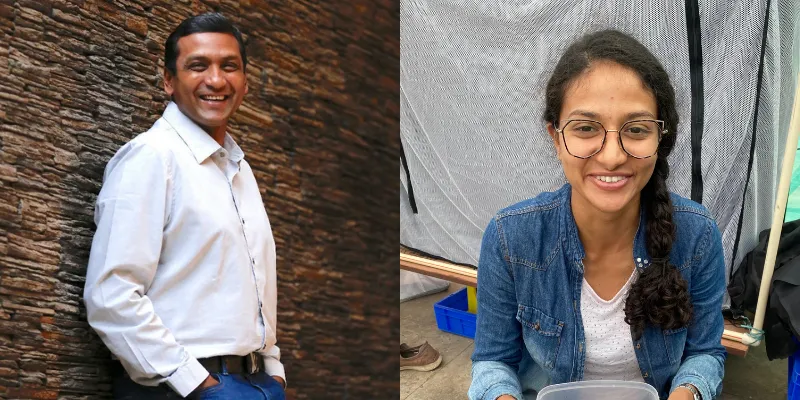
Narendra Pasuparthy and Mitali Poovayya, Co-Founders of Insectifii
To tackle this problem, Narendra, along with Mitali Poovayya, founded Insectifii in 2019 to replace soy protein with insect protein. Insectifii makes insect protein with the help of the remnant organic food surplus from the kitchens, food processing units, etc.
“We are using Black Soldier fly (BSF) larvae that feed on this food surplus and become extremely rich in protein,” Narendra tells SocialStory.
BSF larvae require 99 percent lesser water for their production. These larvae are grown on one hectare of land, equal to 64 hectares for soy cultivation.
Although a small step, this can go a long way to replace soybean-based animal feed with insect protein, thereby reducing the environmental impact.
Tackling two problems at once
Narendra says about 70 percent of the livestock farming costs goes into procuring animal feed, where the price and the quality are highly unstable.
On the other hand, he says, there is a problem of increasing organic food surplus. In fact, about 33 percent of all food is wasted. Most of this food also contaminates groundwater and enables the spread of diseases.
“Because of the broken supply chain and no proper cold storage for farmers, a lot of the food is wasted and goes straight into the landfills. This food surplus is the third largest contributor of greenhouse gases when it rots and releases methane,” Mitali says.
Insectifii tackles both these problems with the help of BSF larvae, which feed off the food surplus and composts the food waste that it collects from various sources.
The Black Soldier Fly’s lifecycle starts as an egg, which hatches into worm-like larvae. These larvae are completely harmless and eat about twice their body weight every day — becoming rich in protein and fat — and can be added to animal fodder.

A Black Soldier Fly (BSF)
Later in the cycle, the larvae metamorphose into a fly to mate with other flies.
In fact, Mitali says that the BSF flies don’t have mouth parts as they feed enough for a lifetime as a larva. Once mated, the female fly can sniff out the waste and lays its eggs there, and the cycle continues.
Insectifii has been running a pilot project in Banashankari, Bengaluru, for the last 1.5 years. It does all its R&D at this facility, and the team is working to make this technology commercially available.
It has set up separate cages with optimal growth conditions for the larvae to grow and monitors them round the clock. Recently, the project completed research trials on the use of insect protein in animal agriculture.
Meeting industry demands
“We are taking something from nature and using that in the industry. So we need to create the ideal condition for the flies to breed and mega produce these eggs,” says Narendra.
He adds, “We have found a particular mixture of organic substrates that work particularly well for the larvae, which helps them grow rapidly and shortens their lifecycle by a few days.”
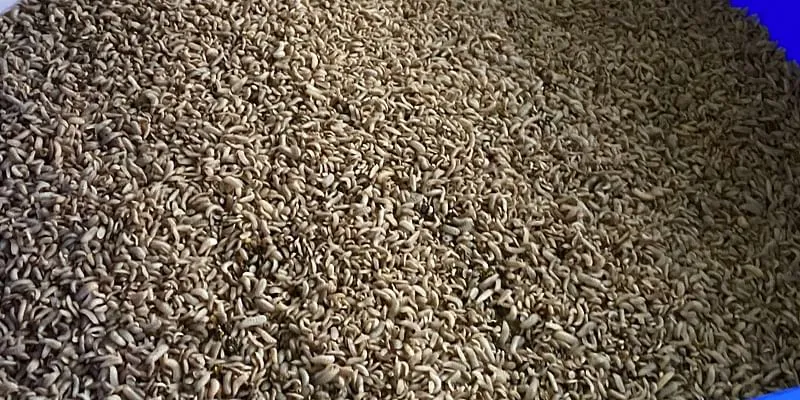
The Black Soldier Fly Larvae
Insectifii aims to mass-produce this insect protein so it can meet the animal food industry requirement. In comparison to soybean production, insect protein production reportedly require 1000X lesser space.
The larvae, after a certain stage, can be dried and powdered and can be used to produce insect oil. The protein-rich larval powder or insect meal can be distributed to animal feed industries, poultry companies, dairy companies, aqua industries, and the animal production industry.
In fact, in one year, Insectifii processed 60,000 tonnes of animal feed through its pilot project and about three tonnes of wet waste per day.
“The compost that remains after the insects feed on it can be used to aid farmers by acting as good-quality natural fertilisers, thereby preventing chemicals from entering the food chain,” says Mitali.
Apart from the founders, the team consists four core members – Naveen Pasuparthy and Shiva Susarla, the directors, Chief Scientist, Dr Nagaraj DN and Poornima S, Production head - along with five farm workers for the current pilot project.
The startup has been bootstrapped so far as Narendra wanted the proof-of-concept to be ready before approaching any investors.
Now, after 1.5 years of R&D and the resulting success and potential, he says they are looking for funding.
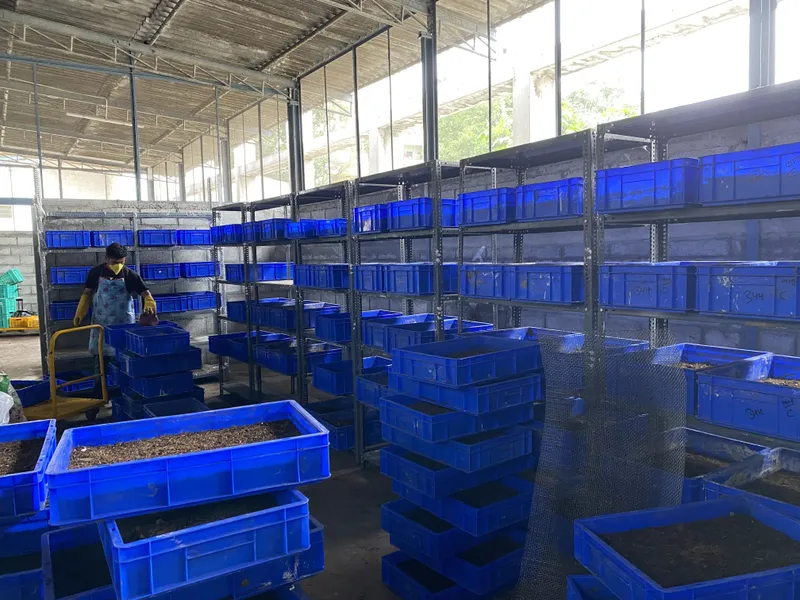
A glimpse of the pilot project facility in Bangalore
Challenges and the way forward
Mitali says that getting segregated waste was a challenge even today, as most households don’t follow the practice. However, with the help of NGO Hasiru Dala, which works with waste pickers and waste workers, the startup was able to procure food waste needed for the project.
In the days ahead, Insectifii aims to scale the capacity of its spaces and process more than 30,000 tonnes of surplus every day.
“At the moment, we are designing a 10 tonne per day flow, and we are trying to channelise the food surplus stream with the help of the government,” says Narendra.
Edited by Suman Singh


